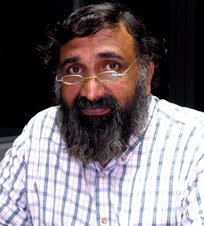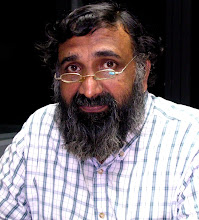India is considered to be the Largest Democracy, where Largest denotes population. And Democracy is supposed to mean, traditionally, a government Of the People, By the People and For the People. I would like to examine whether this is really so.
How do we ensure that the government is really of, by and for the people? The means adopted here is to have universal franchise and regular elections. This allows every adult to vote, right. But does that really ensure that the government functions for the people? For all the people? I think that it is increasingly becoming evident that all state governments and sometimes even the central government do not always function in the interest of all the people. Admitted that there are bound to be conflicts of interest among the people, and, therefore, it may not always be possible to do things in a manner that satisfies everyone. But should the government be fair, and also appear to be fair? Are our governments doing that?
Let us look at some recent happenings. Dr. Binayak Sen is a medical doctor who helped the tribals and the poor in Chattisgarh to obtain good medical help. But he was helping these poor people in other ways too. He was also an activist of the People's Union for Civil Liberties. He was arrested more than a year back because the police felt that he was helping the Naxalites. There was, and there still is, no solid evidence for this. Yet he is still in prison. The law of the land permits the police to arrest anyone on suspicion and lock him/her up for three years without even a trial. For whose good was this done? For whose good is this law?
Ajay T.G. is a film maker who took a short documentary on Dr. Binayak Sen. He was arrested because he dared to take the film. There was absolutely no evidence against him. They had to finally release him because it became not just a national issue, but an international issue. He is still not permitted to go abroad, and has to sign at a local police station every week. For whose good was this done?
A large number of local tribal and poor people are in prison and they have no idea about the crime they are supposed to have done. For whose convenience are these people in prisons?
The police has been forcibly organising these poor people and training them in the use of weapons to fight the Naxalites. The Naxalites are fighting against the forced acquisition of the land by the State for handing it over to large companies for mining. The region is rich in iron ore. But the tribes and the local people are unwilling to move out of the land where they have been living for generations. Admittedly, iron ore is needed by the country. But aren't these people also part of the country? Don't they have the right to be dealt with in a gentlemanly manner?
About 5000 poor families are forcibly occupying government land that used to be a plantation in Chengara, Kerala, with the demand for land. The government has been largely ignoring this agitation, though some attempts were made to talk to them. The tribes have been the most exploited section of the Indian population ever since India won "freedom". Why are they continuing to be ignored, not just in Kerala but in many other states including the industrially advanced Maharashtra. Why does this happen?
No one seems to know exactly what happened in Singur and Nandigram. But there is a reasonable probability that the government was not fair to the local people. The setback suffered by the ruling coalition in the recent elections adds strength to this suspicion.
These are just random examples from memory. I am sure many more such instances can be found if a simple search is done on the Internet. It hardly matter. These few instances themselves are enough to raise the question: What democracy is this? Is the government of some people, by some people and for some people?
Postscript
I will keep adding cases as and when I hear about them.
1) Poorly rehabilitated, adivasi families displaced by the Malay Dam in 1983 in Palamu of Jharkhand are now accused of encroaching on forest land. According to the Land Acquisition Act 1894, the affected families must be served a notice prior to land acquisition. Here, the construction of dam was initiated in 1980 without any information. (See report in Tehelka)
Sunday, September 07, 2008
Subscribe to:
Comments (Atom)

